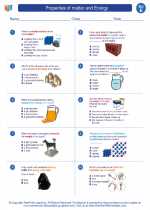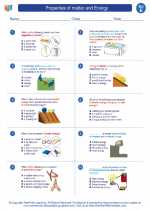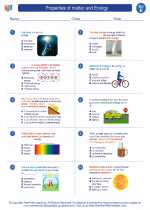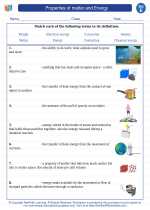Properties of matter and Energy -> nuclear reaction
Nuclear Reactions: Explained
Nuclear reactions involve changes in the nucleus of an atom, leading to the transformation of one element into another. These reactions can release an enormous amount of energy and are the fundamental processes behind nuclear power and nuclear weapons. There are two main types of nuclear reactions: fission and fusion.
Fission
In fission, the nucleus of an atom is split into two smaller nuclei along with the release of energy and several neutrons. This process is the basis for nuclear power plants and atomic bombs.
Fusion
Fusion involves the combination of two light nuclei to form a heavier nucleus. This process powers the sun and other stars and has the potential to provide clean and abundant energy through controlled fusion reactions on Earth.
Study Guide: Nuclear Reactions
- What is a nuclear reaction?
A nuclear reaction involves changes in the nucleus of an atom, leading to the transformation of one element into another. - What are the two main types of nuclear reactions?
The two main types of nuclear reactions are fission and fusion. - Explain fission.
Fission is the process in which the nucleus of an atom is split into two smaller nuclei along with the release of energy and several neutrons. - Explain fusion.
Fusion involves the combination of two light nuclei to form a heavier nucleus. This process powers the sun and other stars. - What are the practical applications of nuclear reactions?
Nuclear reactions are used in nuclear power plants, atomic bombs, and potentially in the future for controlled fusion reactions to generate clean energy.
Understanding nuclear reactions is crucial for comprehending the energy sources and potential risks associated with nuclear technology. By grasping these concepts, students can appreciate the significant impact of nuclear reactions on our world.
[Nuclear Reaction] Related Worksheets and Study Guides:
.◂Science Worksheets and Study Guides Fifth Grade. Properties of matter and Energy

 Worksheet/Answer key
Worksheet/Answer key
 Worksheet/Answer key
Worksheet/Answer key
 Worksheet/Answer key
Worksheet/Answer key
 Vocabulary/Answer key
Vocabulary/Answer key
 Vocabulary/Answer key
Vocabulary/Answer key
